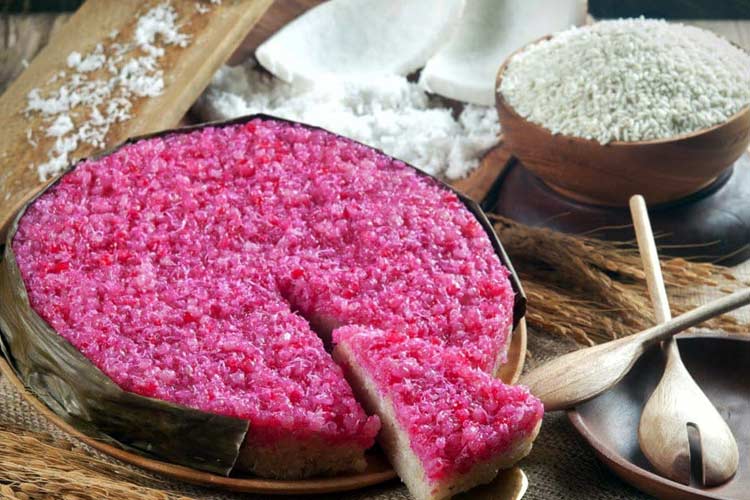Sengkulun: A Traditional Indonesian Delicacy Steeped in History

TIMESINDONESIA, JAKARTA – Sengkulun is a traditional Indonesian snack that has been cherished for generations across various regions of the archipelago. Known for its unique chewy texture and sweet flavor, this delicacy holds a special place in the hearts of those who appreciate the rich culinary heritage of Indonesia.
Despite the ever-changing landscape of modern cuisine, sengkulun has managed to retain its charm, offering a taste of nostalgia and cultural richness with every bite. Its enduring popularity is a testament to the deep-rooted traditions and the importance of preserving Indonesia’s culinary heritage.
Advertisement
Ingredients and Taste
Sengkulun is made from a simple combination of glutinous rice flour, coconut milk, and sugar. These ingredients are carefully mixed to create a sticky, dough-like consistency that is then steamed to perfection. The result is a soft and chewy snack that boasts a delightful balance of sweetness from the sugar and a subtle savory hint from the coconut milk.
Traditionally, this cake is often colored with natural ingredients like pandan leaves, which give the cake a vibrant green hue, or palm sugar, which imparts a rich brown color. These natural colorings not only enhance the visual appeal of the snack but also add a depth of flavor that makes sengkulun truly special.
The Historical and Cultural Significance
Beyond its delicious taste, this local delicacy is steeped in history and cultural significance. It is believed to have originated from the Betawi culture in Jakarta, with its roots tracing back to the early 16th century.
According to historical accounts, sengkulun was first created as an offering to Raja Pakuan of the Sunda Kingdom of Pajajaran, a powerful ruler during that time. The name "sengkulun" is derived from the words "Sang Kulun," which means "palace," symbolizing loyalty and devotion to the king.
In Betawi tradition, this cake holds a special status and is often served during important ceremonies and celebrations such as Eid al-Fitr, Eid al-Adha, and traditional Betawi weddings. Its presence at these events is more than just a treat for the taste buds; it symbolizes unity, familial bonds, and the coming together of loved ones.
The use of glutinous rice flour, which gives this local treat its sticky texture, carries a deeper meaning in Betawi culture. It represents the strong and unbreakable ties between family members and spouses, symbolizing the "stickiness" of these relationships that bind people together.
Cultural Influences and Adaptations
The cultural significance of sengkulun is not confined to Betawi traditions alone. Over the centuries, this snack has been influenced by other cultures, particularly Malay and Chinese, which are also integral parts of Indonesia’s diverse cultural tapestry. In these cultures, sengkulun is often used as a gift or offering, symbolizing respect and goodwill.
These cultural influences have not only shaped the way sengkulun is prepared and served but have also enriched its meaning and significance, making it a culinary symbol of cultural harmony and respect.
Sengkulun Today
Today, this treat continues to be a beloved snack that resonates with many Indonesians, reminding them of their rich cultural heritage and the importance of preserving traditional culinary practices. While the methods of preparation and presentation may have evolved over time, the essence of sengkulun remains unchanged – it is a delicacy that connects the past with the present, bringing people together through shared taste and tradition.
In a rapidly modernizing world, where convenience often overshadows tradition, sengkulun stands as a testament to the enduring appeal of traditional foods. It is more than just a snack; it is a slice of history, a piece of culture, and a reminder of the simple yet profound joys of life. (*)
**) Ikuti berita terbaru TIMES Indonesia di Google News klik link ini dan jangan lupa di follow.
| Editor | : Khodijah Siti |
| Publisher | : Ahmad Rizki Mubarok |

